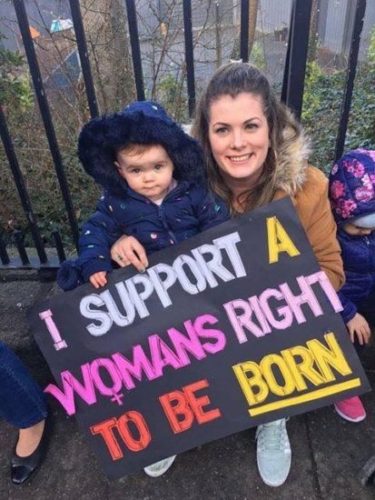Clarence Thomas takes on Planned Parenthood:
The U.S. Constitution itself is silent on abortion. Supreme Court Justice Thomas, in a concurring opinion in Box v. Planned Parenthood, took a look at Planned Parenthood’s eugenicist history. In this case the Supreme Court of the United States (SCOTUS) upheld the part of an Indiana law which said the remains of an aborted child were “nothing less than the remains of a partially gestated fetus and should be treated with the same dignity.” The Court also declined to weigh in on a second part of the law that banned selective abortions based on sex, race or disability. The decision can be read at the following link: https://casetext.com/case/box-v-planned-parenthood-of-indiana-and-kentucky-inc
Some compelling points from Justice Thomas’ concurrence:
Aborted children are not infectious waste…
He wrote that: “Indiana law prohibits abortion providers from treating the bodies of aborted children as “infectious waste” and incinerating them alongside used needles, laboratory animal carcasses, and surgical byproducts.” He goes on to observe, “I would have thought it could go without saying that nothing in the Constitution or any decision of this Court prevents a State from requiring abortion facilities to provide for the respectful treatment of human remains.”
“This statute makes it illegal for an abortion provider to perform an abortion in Indiana when the provider knows that the mother is seeking the abortion solely because of the child’s race, sex, diagnosis of Down syndrome, disability, or related characteristics.”
Abortion should not be a tool of eugenics today
“Each of the immutable characteristics protected by this law can be known relatively early in a pregnancy, and the law prevents them from becoming the sole criterion for deciding whether the child will live or die…” Thomas wrote. “Put differently, this law and other laws like it promote a State’s compelling interest in preventing abortion from becoming a tool of modern-day eugenics…”
“The use of abortion to achieve eugenic goals is not merely hypothetical. The foundations for legalizing abortion in America were laid during the early 20th-century birth-control movement. That movement developed alongside the American eugenics movement. And significantly, Planned Parenthood founder Margaret Sanger recognized the eugenic potential of her cause. She emphasized and embraced the notion that birth control ‘opens the way to the eugenist.’”
Sanger’s argument
“Sanger’s arguments about the eugenic value of birth control in securing ‘the elimination of the unfit’ … apply with even greater force to abortion, making it significantly more effective as a tool of eugenics.”
“Whereas Sanger believed that birth control could prevent ‘unfit’ people from reproducing, abortion can prevent them from being born in the first place. Many eugenicists therefore supported legalizing abortion, and abortion advocates — including future Planned Parenthood President Alan Guttmacher — endorsed the use of abortion for eugenic reasons. Technological advances have only heightened the eugenic potential for abortion, as abortion can now be used to eliminate children with unwanted characteristics, such as a particular sex or disability.”
Moving forward
“Given the potential for abortion to become a tool of eugenic manipulation, the Court will soon need to confront the constitutionality of laws like Indiana’s…”
The Justice noted that Box v. Planned Parenthood “highlights the fact that abortion is an act rife with the potential for eugenic manipulation. From the beginning, birth control and abortion were promoted as means of effectuating eugenics. Planned Parenthood founder Margaret Sanger was particularly open about the fact that birth control could be used for eugenic purposes. These arguments about the eugenic potential for birth control apply with even greater force to abortion, which can be used to target specific children with unwanted characteristics.”
“Like many elites of her day, Sanger accepted that eugenics was ‘the most adequate and thorough avenue to the solution of racial, political and social problems…’”
Sanger on selective human breeding
“She agreed with eugenicists that ‘the unbalance between the birth rate of the “unfit” and the “fit’” was ‘the greatest present menace to civilization.’ … Particularly ‘in a democracy like that of the United States,’ where ‘[e]quality of political power has . . . been bestowed upon the lowest elements of our population.’”
Sanger, Thomas wrote, “worried that ‘reckless spawning carries with it the seeds of destruction.’”
“Today, notwithstanding Sanger’s views on abortion, respondent Planned Parenthood promotes both birth control and abortion as ‘reproductive health services’ that can be used for family planning…”
“And with today’s prenatal screening tests and other technologies, abortion can easily be used to eliminate children with unwanted characteristics. Indeed, the individualized nature of abortion gives it even more eugenic potential than birth control, which simply reduces the chance of conceiving any child. As petitioners and several amicus curiae briefs point out, moreover, abortion has proved to be a disturbingly effective tool for implementing the discriminatory preferences that undergird eugenics.”
Abortion uses today
“In Iceland, the abortion rate for children diagnosed with Down syndrome in utero approaches 100%…”
“In Asia, widespread sex-selective abortions have led to as many as 160 million ‘missing’ women — more than the entire female population of the United States.”
Conclusion
While none of this is new. What is new is seeing it in detail in a Supreme Court opinion. Thomas and SCOTUS weren’t willing to confront the constitutionality of that part of the law… yet. But that he does confront Planned Parenthood itself. The question we should watch is: Will the Thomas concurrence have repercussions beyond publicly highlighting the organization and its motives?
